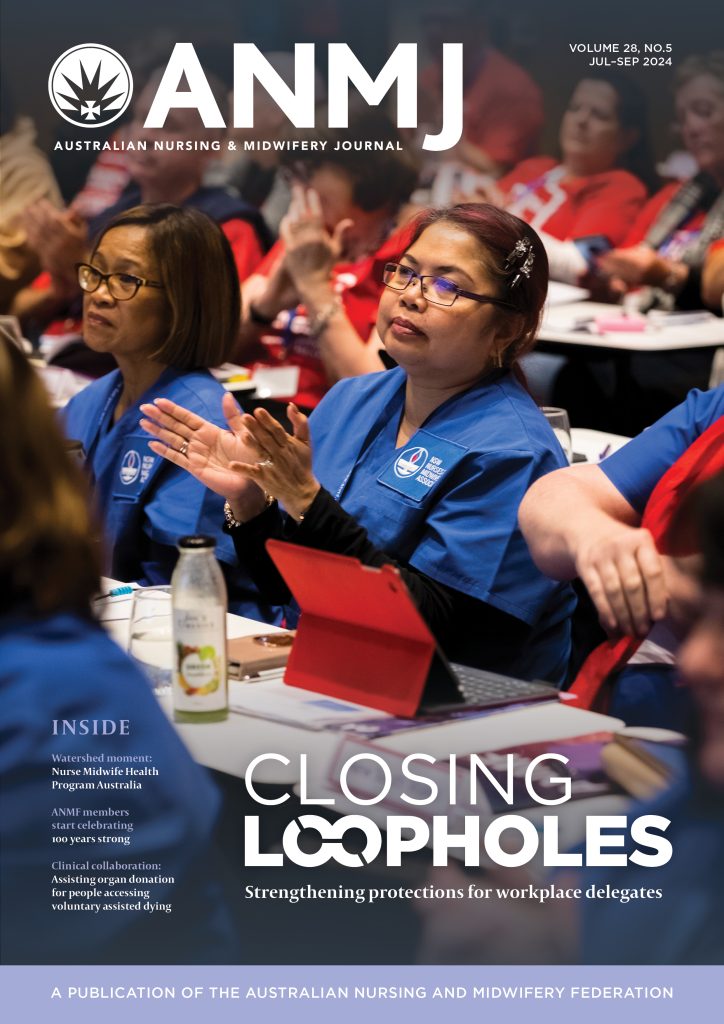On 16 May 2022, the Fair Work Commission (FWC) handed down a decision advising that its provisional view was that Modern Awards should be amended to include an entitlement to 10 days paid Family and Domestic Violence (FDV) leave.
The decision comes after years of campaigning led by the ACTU and the union movement to enshrine access to paid FDV leave in awards, ensuring all workers can take paid time to deal with and leave violent and abusive relationships. In 2018, in response to ACTU’s first application for paid FDV leave, the FWC took a cautious response and agreed that five days unpaid leave should be included in awards. It also agreed that it was appropriate to review whether the leave should be paid in three years.
In line with the initial decision, the ACTU applied to FWC for 10 days paid leave for ongoing and casual employees in 2021. The application was opposed by a range of large employer representative groups, including ACCI and Ai Group. They opposed the application on the basis that paid FDV leave would impose too great a cost and administrative burden on employers.
After considering the parties’ submissions and accepting the unchallenged evidence from expert witnesses and professionals working in medicine, law, industrial relations and services supporting people experiencing FDV, the FWC made a number of significant findings in support of granting paid FDV leave.
Findings
The FWC, in its decision, accepts family and domestic violence as a ubiquitous and persistent social problem that disproportionally affects women. It is a gendered phenomenon that has grown worse over the course of the COVID-19 pandemic. It found that women experiencing or who have experienced FDV have a more disrupted work history, are on lower incomes, change jobs more frequently and are more likely to be employed on a casual or part-time basis than women who have not experienced FDV. As a result, employees who experience FDV often experience financial difficulties, such as relocation costs, being sole parents, and disruption to workplace participation.
The FWC also accepted the expert evidence that found the effects of FDV are far reaching and extend beyond the individual to their families and the general community. This, in turn, has a cost to the economy and an estimated cost to employers of up to $2 billion a year. In granting paid leave, employers will also benefit from a reduction in absenteeism and lost productivity caused by FDV.
Importantly, the FWC recognised that employment is a vital pathway out of violent relationships and paid FDV leave significantly assists employees who experience FDV. It helps individuals maintain economic security, access services and move to a safer life, free from FDV.
In concluding that paid FDV leave is warranted, the FWC looked at existing entitlements to paid leave under enterprise agreements. It observed that there had been a sharp rise in the provision of paid leave over the last five years due to bargaining. This assisted FWC in finding that the provision of 10 days paid FDV leave is an emerging industrial standard that should be recognised as an award safety net standard.
The assertions that paid leave would be too costly to employers were rejected, as was the argument that paid leave would act as a disincentive to employing women. Regrettably, the union claim for the leave to apply to casual employees was rejected.
The proposed award standard
The FWC decision sets out a provisional view that the new paid leave provision should include:
- Ten days paid FDV leave per year for full-time employees, pro-rata for part time employees
- Paid leave to accrue progressively over the year and to accumulate from year to year, subject to a cap of 10 days at any given time
- Can be available in advance of accrual by agreement
- Paid at the employee’s base rate of pay
The parties to the application are now asked to provide FWC with a draft FDV leave clause to be included in all awards.
What does the decision mean for ANMF members?
This decision leads the way to make paid leave available to members who are award reliant. Negotiations for new agreements will be required to meet or better the new standard. Most importantly, ANMF members will have the security of knowing essential financial support is available when confronting FDV.









